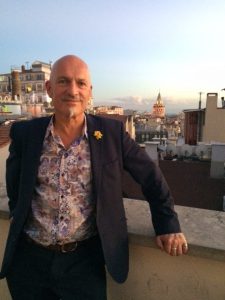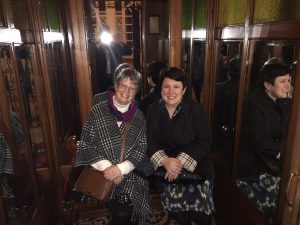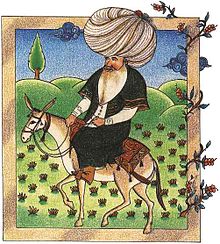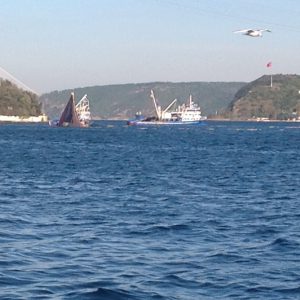
So, following a four day tale telling trip to Bangkok, just back from a four day tale telling trip to Istanbul, thanks to Authors Abroad. Two days at Üsküdar American Academy and two days at Enka Schools.
We were delighted with Clive’s visit to our school on Monday & Tuesday.
He is a very professional and consummate performer, pitching at the correct level for our 14/15 year old, second language English, high school students.
He was a great lunch companion for a small group of students who were chosen to host him, showing a genuine interest in them and their writing.
On a business level, I could not have wished for a more eager & willing gentleman, taking the minor hiccups with good grace, in his stride.
Lesley Lee | Head Librarian Üsküdar American Academy
As you can imagine (unless your name is Imogen and you’ve lost your imagination) this was an intense whirlwind experience. Whisked by taxi from Ataturk airport past forty men playing football at 1.30 on Monday morning, zooming past the Blue Mosque and then across the bridge to Asia. Up at 6am for Turkish breakfast in the library and then facilitating storytelling and creative writing workshops, followed by cocktails at the Pera Palace Hotel (built for the passengers of the Orient Express) with Lesley and the wonderfully connected Gail who together blagged us a personal visit to the Ataturk Room.

In Ernest Hemingway’s short story The Snows of Kilimanjaro, the main character, writer Harry, stays at the Pera Palace hotel while serving in the military during the Allied occupation of Constantinople (Istanbul) in World War I.
Henry Pulling and his aunt Augusta Bertram, protagonists of Graham Greene’s 1969 novel, Travels With My Aunt, stay at the Pera Palace during their Istanbul adventure.
Detective writer Agatha Christie’s 1934 novel Murder on the Orient Express was allegedly written in the Pera Palace Hotel in Istanbul, Turkey, the southern terminus of the railway. The hotel maintains Christie’s room as a memorial to the author.
So, less of the self indulgency and let’s have a story? OK.

Once Nasreddin was invited to deliver a sermon. When he got on the pulpit, he asked, ‘Do you know what I am going to say?’ The audience replied ‘no’, so he announced, ‘I have no desire to speak to people who don’t even know what I will be talking about!’ and left. The people felt embarrassed and called him back again the next day. This time, when he asked the same question, the people replied ‘yes’. So Nasreddin said, ‘Well, since you already know what I am going to say, I won’t waste any more of your time!’ and left. Now the people were really perplexed. They decided to try one more time and once again invited the Mulla to speak the following week. Once again he asked the same question – ‘Do you know what I am going to say?’ Now the people were prepared and so half of them answered ‘yes’ while the other half replied ‘no’. So Nasreddin said ‘Let the half who know what I am going to say, tell it to the half who don’t’, and left.
Had a great time at Enka Schools thanks to the amiable Teacher Librarian ,George Duvoisin. Another highlight of this second half of my flying visit was my stay at Fuat Pasa Hotel at Büyükdere-Sariyer and my evening walks along the Bosphorous. Doubly excited when I realised I was by the clashing rocks Jason and The Argonauts navigated through on their way to the Black Sea and Colchis.

And just for your information (courtesy of Wikipedia):
The original name of the channel comes from an Anglicization of the Ancient Greek Βόσπορος (Bosporos), which was folk-etymologized as βοὸς πόρος, i.e. “cattle strait” (or “Ox-ford”, from the genitive of bous βοῦς “ox, cattle” + poros πόρος “passage”, thus meaning “cattle-passage”, or “cow passage”. This is in reference to the mythological story of Io, who was transformed into a cow, and was subsequently condemned to wander the Earth until she crossed the Bosphorus, where she met the Titan Prometheus, who comforted Io with the information that she would be restored to human form by Zeus and become the ancestress of the greatest of all heroes, Heracles (Hercules).
This folk etymology was canonized by Aeschylus in Prometheus Bound (v. 734f.), where Prometheus prophesies to Io that the strait would be named after her. The site where Io supposedly went ashore was near Chrysopolis (present-day Üsküdar), and was named Bous “the Cow”. The same site was also known as Damalis, as it was where the Athenian general Chares had erected a monument to his wife Damalis, which included a colossal statue of a cow (the name Damalis translating to “calf”).
So, arrived Monday morning, flew back Thursday evening and reached Newton Abbot at 5am Friday morning. Taxi driver en route to Ashburton response when I tell him about trip to Turkey is, ‘ you’ve still got your head?’
Talking Turkey